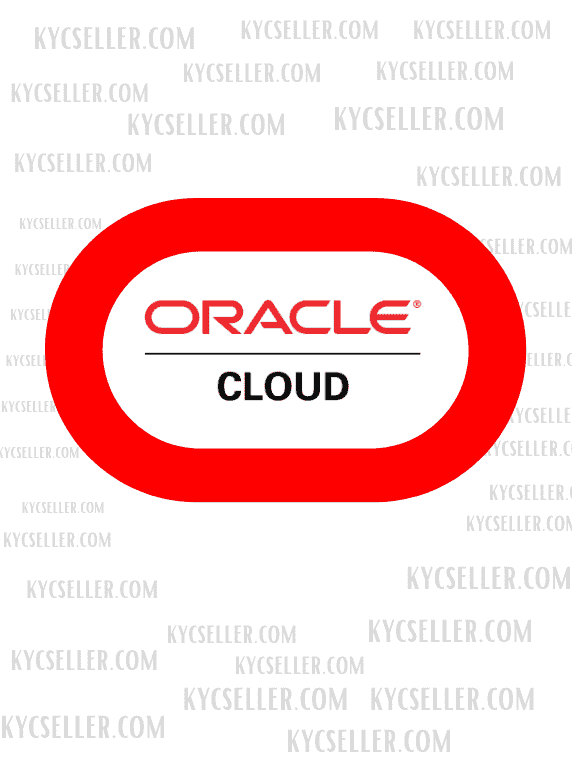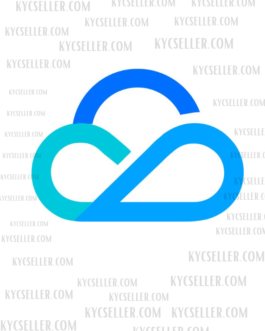Description
Buy Oracle cloud accounts
Creating an Oracle Cloud account can offer several advantages, depending on your specific needs and requirements. Here are some reasons why individuals or businesses might choose to use Oracle Cloud services:
Comprehensive Cloud Solutions:
- Oracle Cloud provides a wide range of cloud services, including infrastructure as a service (IaaS), platform as a service (PaaS), and software as a service (SaaS). This allows users to find solutions that fit their specific requirements, from basic computing resources to advanced database and application services.
Enterprise-Grade Performance:
- Oracle Cloud is designed to meet the performance and scalability needs of enterprise-level applications. It offers high-performance computing resources, databases, and other services suitable for demanding workloads.
Integrated Cloud and On-Premises Solutions:
- Oracle Cloud is known for its ability to seamlessly integrate with existing on-premises infrastructure. This is particularly beneficial for businesses undergoing a hybrid cloud strategy, where they leverage both on-premises and cloud resources.
Database Services:
- Oracle is a leader in database technology, and Oracle Cloud provides robust and fully managed database services. Users can benefit from features like Oracle Autonomous Database, which automates many database management tasks.
Security and Compliance:
- Oracle Cloud places a strong emphasis on security and compliance. It provides features such as encryption, identity and access management, and compliance certifications to help organizations meet regulatory requirements.
AI and Machine Learning Services:
- Oracle offers artificial intelligence (AI) and machine learning (ML) services, allowing users to integrate advanced analytics and intelligence into their applications.
Global Data Center Presence:
- Oracle has a global network of data centers, enabling users to deploy resources in regions that are geographically closer to their users or customers. This can help reduce latency and improve overall performance.
Developer Tools and Productivity:
- Oracle provides a range of tools and services for developers, including integrated development environments (IDEs) and continuous integration/continuous deployment (CI/CD) tools, enhancing overall development productivity.
Cost Management:
- Oracle Cloud offers various pricing models, including pay-as-you-go and flexible subscription options. This allows users to manage costs effectively based on their usage patterns.
It’s important to note that the choice of a cloud service provider depends on specific use cases, preferences, and the nature of the workloads you intend to run in the cloud. Before creating an Oracle Cloud account, it’s advisable to assess your requirements and explore the features and services offered by Oracle Cloud to determine if it aligns with your business or project needs.
Available Oracle cloud accounts for sale
Whatever your use for personal or business. Single to bulk, tire to premium all types of Oracle accounts are available here.If you are a company or organisation and you need bulk and number of accounts then you are in the right place. Revolutionise your business with our reliable Microsoft Web Services (Oracle), the world’s leading cloud computing platform! For a limited time, experience unmatched scalability, security, and innovation at an unbeatable price.
- Global Reach: Deploy applications worldwide for optimal performance.
- Comprehensive Service Offering: Access a full spectrum of cloud services tailored to your business needs.
- Security and Compliance: Trust Oracle’s industry-leading security measures and compliance certifications.
Seize the opportunity to transform your business with Oracle! Act fast, as this sale won’t last forever. Embrace the cloud revolution today!
Is there a need to buy verified Oracle cloud accounts?
The verification process for Oracle Cloud accounts may vary depending on the specific requirements and policies of Oracle at that time. Generally, cloud service providers, including Oracle Cloud, often have verification processes in place to ensure the security of user accounts and compliance with their terms of service.
Verification processes may involve confirming email addresses, phone numbers, or other information provided during the account creation process. Additionally, some cloud providers may implement multi-factor authentication (MFA) to add an extra layer of security to user accounts.
Since policies and procedures can change, I recommend checking the official Oracle Cloud documentation or contacting Oracle Cloud support directly for the most up-to-date and accurate information on account verification procedures. Oracle’s official documentation and support channels will provide the most reliable and current guidance regarding account verification and security measures.
FAQs to buy Oracle cloud account
here are some frequently asked questions (FAQs) that were relevant as of my last update:
What is Oracle Cloud?
Oracle Cloud is a cloud computing platform offered by Oracle Corporation. It provides a suite of cloud services, including computing power, storage, and databases, as well as various application services.
What services does Oracle Cloud offer?
Oracle Cloud offers a comprehensive set of services, including Infrastructure as a Service (IaaS), Platform as a Service (PaaS), Software as a Service (SaaS), and more. Some key services include Oracle Cloud Infrastructure (OCI), Oracle Autonomous Database, and Oracle Cloud Applications.
How does Oracle Cloud differ from other cloud providers?
Oracle Cloud differentiates itself through its focus on enterprise-level cloud solutions, including its expertise in databases and business applications. It also emphasizes high-performance computing, security, and integration with on-premises infrastructure.
How do I sign up for Oracle Cloud?
You can sign up for Oracle Cloud by visiting the Oracle Cloud website and following the registration process. During registration, you may need to provide some basic information, including a valid email address, and set up your account.
What is Oracle Autonomous Database?
Oracle Autonomous Database is a cloud database service that uses machine learning to automate various management and maintenance tasks traditionally performed by database administrators. It is designed to be self-driving, self-securing, and self-repairing.
How is security handled in Oracle Cloud?
Oracle Cloud places a strong emphasis on security. It provides features such as identity and access management, encryption, network security, and monitoring to help customers secure their data and applications.
What is Oracle Cloud Infrastructure (OCI)?
Oracle Cloud Infrastructure is the IaaS component of Oracle Cloud. It offers scalable and high-performance computing resources, including virtual machines, storage, and networking, for running a wide range of applications.
How does billing work in Oracle Cloud?
Oracle Cloud typically operates on a pay-as-you-go pricing model, where customers are billed based on their usage of resources. The exact pricing details can vary depending on the specific services and resources used.
Remember, for the latest and most accurate information, it’s recommended to refer to Oracle Cloud’s official documentation or contact their support.
Why do you choose us to buy Oracle accounts?
Here are a few additional information about every one of the following reasons
Competitive rates:
We provide competitive rates when purchasing Oracle as we strive to provide the most price that our users can get. We realise that you’re faced with an option when it comes to purchasing Oracle. We would like to ensure that you select us because we provide the most competitive price.
Secure and safe platform:
We utilise a variety of security measures to safeguard your data, including the use of encryption and fraud prevention along with two-factor security. We are very concerned about security and wish you to have confidence that your transaction is secure when you do business with us.
Speedy and efficient:
We process transactions fast and efficiently due to the fact that we know that time is crucial to you. Our goal is to help you have your Oracle as swiftly as you can, which is why we do our best to ensure that you get your money as swiftly as possible.
Good reputation:
We are known for our excellent customer service. We know that purchasing Oracle can be a challenging undertaking, so we’d like to ensure that you are satisfied. We’re available to answer any questions you may have and assist you in the transaction.
100% money back guarantee:
We only offer a product guarantee, if not three working days, or for 72 hours. cash return guarantee.
Available 24/7:
We are always available to answer any questions you may have and assist you in the transaction. We realise that you could have to purchase Oracle any time of the day or night, so we want to ensure that we’re available to assist you.
We hope that this article will be of help. For any additional queries, please don’t hesitate to get in touch with us.
What can you do to buy Oracle cloud accounts?
Oracle Cloud offers a comprehensive suite of cloud services that cater to various business needs. Here are some of the key features and capabilities of Oracle Cloud:
-
Infrastructure as a Service (IaaS):
- Compute Services: Oracle Cloud provides virtual machines (VMs) and bare metal instances for running applications and workloads.
- Storage Services: You can leverage object storage, block storage, and file storage services to store and retrieve data.
-
Platform as a Service (PaaS):
- Database Services: Oracle Cloud offers fully managed database services, including Oracle Autonomous Database, which automates many administrative tasks.
- Developer Services: Tools and services for application development, including Oracle Cloud Developer, Container, and Functions services.
-
Software as a Service (SaaS):
- Oracle Cloud provides a range of SaaS applications, such as enterprise resource planning (ERP), human capital management (HCM), customer experience (CX), and more.
-
Networking:
- Virtual Cloud Network (VCN): Create and manage your own virtual network with customizable IP addresses, subnets, and route tables.
- Load Balancer: Distribute incoming network traffic across multiple servers to ensure no single server is overwhelmed with too much traffic.
-
Security:
- Oracle Cloud offers security services like Identity and Access Management (IAM) for managing user access, as well as options for encryption and key management.
-
Analytics and Big Data:
- Services for analytics, data integration, and big data processing, including Oracle Analytics Cloud and Oracle Big Data Service.
-
Integration:
- Oracle Integration Cloud provides tools for seamlessly connecting cloud and on-premises applications.
-
Artificial Intelligence and Machine Learning:
- Oracle Cloud includes services for AI and ML, such as Oracle Machine Learning, allowing you to build, train, and deploy machine learning models.
-
Autonomous Services:
- Oracle offers autonomous services, such as the Oracle Autonomous Database, which automatically manages tasks like patching, tuning, and backup without human intervention.
-
Internet of Things (IoT):
- Oracle IoT provides solutions for connecting, analyzing, and integrating IoT data into applications and business processes.
-
Developer Tools:
- Tools and resources for developers, including Oracle Infrastructure Developer tools and APIs.
-
Management and Monitoring:
- Services for managing and monitoring your infrastructure, applications, and services.
These are just a few examples, and Oracle continues to evolve with new services and features. The specific features you might use depend on your business requirements and the type of applications you want to deploy in the cloud.
The best cloud service is the Oracle service
It’s important to note that determining the “best” cloud service depends on various factors, and what might be considered the best for one organization or use case may not be the same for another. Different cloud providers excel in different areas, and the choice often depends on specific requirements, preferences, and the nature of the workload.
As of my last knowledge update in January 2022, Oracle Cloud has been recognized for several strengths, and it may be a preferred choice for certain scenarios. Here are some reasons why organizations might consider Oracle Cloud:
-
Comprehensive Suite of Services:
- Oracle Cloud offers a wide range of cloud services, covering Infrastructure as a Service (IaaS), Platform as a Service (PaaS), and Software as a Service (SaaS). This comprehensive suite allows users to build, deploy, and manage applications seamlessly.
-
Autonomous Database:
- Oracle is known for its Autonomous Database, which automates many aspects of database management, including tuning, patching, and backups. This can result in improved performance, reduced downtime, and lower operational overhead.
-
Enterprise-Grade Database Solutions:
- Oracle Cloud is particularly strong in providing enterprise-grade database solutions. The Oracle Database is widely used in the industry, and Oracle Cloud provides managed database services, including the Autonomous Database, which is designed for high performance and reliability.
-
Security Features:
- Oracle Cloud emphasizes security with features such as Identity and Access Management (IAM), encryption, and compliance tools. This can be critical for organizations with stringent security and compliance requirements.
-
Integration Capabilities:
- Oracle Cloud offers integration services to connect various applications and systems. This can be beneficial for organizations looking to streamline their business processes and create a cohesive IT environment.
-
Global Data Center Presence:
- Oracle Cloud has data centers located in multiple regions around the world. A global presence can be advantageous for organizations with geographically distributed users and a need for low-latency access to resources.
-
Focus on Cloud Innovation:
- Oracle continues to invest in cloud innovation, regularly introducing new services and features. Staying at the forefront of technology can be important for organizations seeking to leverage the latest advancements.
It’s crucial to consider your specific requirements, budget constraints, and the nature of your workloads when evaluating cloud service providers. Other major cloud providers, such as Amazon Web Services (AWS), Microsoft Azure, and Google Cloud Platform (GCP), also have strong offerings, and the best choice often depends on the unique needs of your organization. Additionally, the cloud landscape is dynamic.
Compare Oracle cloud service with other services
Comparing Oracle Cloud with other cloud services, such as Amazon Web Services (AWS), Microsoft Azure, and Google Cloud Platform (GCP), involves considering various factors. Each cloud provider has its strengths and weaknesses, and the choice often depends on specific business requirements. Here’s a general comparison across different aspects:
-
Compute Services:
- Oracle Cloud: Provides virtual machines (VMs) and bare metal instances. It emphasizes enterprise-grade capabilities and performance.
- AWS: Offers a wide range of virtual machine instances with a strong global presence.
- Azure: Provides a variety of VMs and supports hybrid cloud scenarios with integration with on-premises infrastructure.
- GCP: Known for its emphasis on containerized workloads and offers a range of VM options.
-
Database Services:
- Oracle: Strong emphasis on database services, including the Autonomous Database, which automates management tasks.
- AWS: Offers Amazon RDS for managed relational databases and a variety of database options, including Amazon Aurora.
- Azure: Provides Azure SQL Database and various managed database services.
- GCP: Offers Cloud SQL for managed relational databases and Cloud Spanner for globally distributed databases.
-
Storage Services:
- Oracle Cloud: Provides object storage, block storage, and file storage options.
- AWS: Offers Amazon S3 for object storage, Amazon EBS for block storage, and Amazon EFS for file storage.
- Azure: Provides Azure Blob Storage, Azure Disk Storage, and Azure File Storage.
- GCP: Offers Cloud Storage for object storage, Persistent Disks for block storage, and Cloud Filestore for file storage.
-
Networking:
- Oracle: Virtual Cloud Network (VCN) for networking with load balancing and other networking services.
- AWS: Amazon VPC with various networking features, including AWS Load Balancer.
- Azure: Azure Virtual Network with services like Azure Load Balancer.
- GCP: Google Virtual Private Cloud (VPC) with features like Google Cloud Load Balancing.
-
Serverless and Container Services:
- Oracle Cloud: Provides Oracle Cloud Functions for serverless computing and Oracle Cloud Container Engine for Kubernetes (OKE).
- AWS: Offers AWS Lambda for serverless and Amazon EKS for Kubernetes.
- Azure: Provides Azure Functions for serverless and Azure Kubernetes Service (AKS) for Kubernetes.
- GCP: Offers Cloud Functions for serverless and Google Kubernetes Engine (GKE) for Kubernetes.
-
AI and Machine Learning:
- Oracle: Offers AI and ML services, including Oracle Machine Learning.
- AWS: Provides Amazon SageMaker and a range of AI/ML services.
- Azure: Offers Azure Machine Learning and various AI services.
- GCP: Provides AI Platform and a suite of machine learning APIs.
-
Security and Identity:
- Oracle Cloud: Emphasizes security with IAM features and encryption capabilities.
- AWS: Provides a robust set of security features, including AWS Identity and Access Management (IAM) and encryption options.
- Azure: Offers Azure Active Directory and various security services.
- GCP: Emphasizes security with Google Cloud Identity and Access Management and encryption features.
-
Global Presence:
- Oracle Cloud: Expanding global presence with data centers in multiple regions.
- AWS: Extensive global infrastructure with a large number of regions and availability zones.
- Azure: Presence in multiple regions with a focus on hybrid cloud scenarios.
- GCP: Growing global network with data centers in multiple regions.
-
Ecosystem and Integration:
- Oracle Cloud: Integrates well with Oracle’s on-premises solutions and has a broad ecosystem.
- AWS: Extensive partner ecosystem and integration capabilities.
- Azure: Strong integration with Microsoft’s software products and a growing ecosystem.
- GCP: Emphasizes open-source technologies and provides integration with various tools.
-
Pricing:
- Oracle Cloud: Pricing models that may be competitive, but it depends on specific use cases.
- AWS: Offers various pricing models, including pay-as-you-go and reserved instances.
- Azure: Flexible pricing options, including pay-as-you-go and reserved instances.
- GCP: Competitive pricing with sustained use discounts and committed use discounts.
Ultimately, the choice between cloud providers depends on the specific needs of your organization, including factors like workload requirements, existing technologies, geographic distribution, and budget considerations. It’s advisable to evaluate each provider’s strengths in relation to your unique use case. Additionally, the cloud landscape is dynamic, and new services and features may be introduced over time. Always refer to the latest documentation and updates when making a decision.
Cons of the Oracle cloud account
While Oracle Cloud offers a range of services and features, like any cloud platform, it may have some drawbacks or considerations that organizations should be aware of. Keep in mind that these considerations might change over time as cloud services evolve. Here are some potential drawbacks or challenges associated with Oracle Cloud:
-
Complex Pricing Structure:
- Oracle Cloud’s pricing structure can be complex, and users may find it challenging to estimate costs accurately. Understanding the pricing details, including data transfer and storage costs, is crucial to avoid unexpected expenses.
-
Smaller Ecosystem Compared to Competitors:
- Oracle Cloud may have a smaller ecosystem compared to major competitors like AWS, Azure, and GCP. This could impact the availability of third-party integrations and a community of developers sharing resources and knowledge.
-
Learning Curve:
- Users transitioning from other cloud providers might face a learning curve due to differences in terminology, service offerings, and management interfaces.
-
Limited Market Share:
- As of my last knowledge update, Oracle Cloud had a smaller market share compared to AWS, Azure, and GCP. While market share doesn’t necessarily indicate service quality, it may affect the availability of tutorials, community support, and a broad range of third-party tools and services.
-
Less Diverse Service Offerings:
- While Oracle Cloud provides a comprehensive set of services, some users may find that it has fewer options or variations compared to larger cloud providers, especially in emerging areas like serverless computing and specialized AI services.
-
Performance Concerns:
- Depending on specific use cases and workloads, some users have reported performance concerns with certain Oracle Cloud services. It’s important to thoroughly test and evaluate performance for your particular applications.
-
Limited Data Center Regions:
- Oracle Cloud’s global data center presence may be smaller compared to some other major cloud providers. The availability of data centers in specific regions could impact latency and data residency requirements.
-
Integration Challenges:
- Integration with existing on-premises systems or third-party services might be challenging, particularly if those systems are not Oracle-based. Compatibility and seamless integration with other ecosystems may vary.
-
Documentation and Community Support:
- The availability of documentation and community support for Oracle Cloud services might be perceived as less extensive compared to more mature cloud providers. This can impact the ease with which users can find solutions to common issues.
-
Vendor Lock-In Concerns:
- As with any cloud provider, there may be concerns about vendor lock-in, especially if an organization heavily relies on Oracle-specific technologies. This can make it challenging to migrate away from Oracle Cloud in the future.
It’s essential for organizations to thoroughly evaluate their specific needs, conduct pilot projects, and consider factors such as pricing, performance, ecosystem, and support when choosing a cloud provider. It’s also advisable to stay updated with the latest developments and user experiences as cloud services evolve over time.
Identity and security of Oracle cloud accounts
Identity and security are critical aspects of any cloud service, including Oracle Cloud. Oracle Cloud provides a set of tools and features to help users manage identity and access, as well as to secure their cloud environments. Here are key components related to identity and security in Oracle Cloud:
-
Oracle Identity and Access Management (IAM):
- IAM Services: Oracle Cloud uses IAM for managing users, groups, and permissions. IAM enables you to control access to Oracle resources by defining who can do what and under what circumstances.
- Roles and Policies: IAM roles and policies are used to grant specific permissions to users, groups, or services. Roles define a set of permissions, and policies attach those roles to specific identities.
-
Authentication and Authorization:
- Multi-Factor Authentication (MFA): Oracle supports MFA to enhance account security. Users can enable MFA to add an extra layer of authentication beyond the traditional username and password.
- Authorization Policies: Oracle IAM allows for fine-grained control over access to resources, ensuring that users and services have the necessary permissions for their specific roles.
-
Security at the Infrastructure Level:
- Virtual Cloud Network (VCN): Oracle users can define their own virtual networks, control traffic flow, and implement security rules using the VCN service.
- Security Lists and Network Security Groups: These services enable the definition of security rules at the network level to control traffic to and from resources.
-
Data Encryption:
- Data Encryption in Transit: Oracle supports SSL/TLS for encrypting data in transit between clients and services.
- Data Encryption at Rest: Users can enable encryption for data at rest in various storage services, including block storage and object storage.
-
Security Monitoring and Logging:
- Audit and Monitoring Services: Oracle provides audit logs and monitoring services that allow users to track changes, user activities, and system events.
- Security Information and Event Management (SIEM): Users can integrate Oracle Cloud with SIEM solutions to centralize and analyze security event data.
-
Security Certifications and Compliance:
- Oracle Cloud has obtained various security certifications, including ISO/IEC 27001, SOC 2, and others. Compliance with these standards is important for organizations with regulatory requirements.
-
Identity Federation:
- Oracle Cloud supports identity federation, allowing users to use their existing corporate credentials for access to Oracle Cloud services. This facilitates Single Sign-On (SSO) across multiple systems.
-
Security Advisories and Patching:
- Oracle Cloud provides security advisories and patching services to ensure that the infrastructure and services are up-to-date with the latest security fixes.
-
Security for Autonomous Database:
- The Autonomous Database service in Oracle includes built-in security features, such as transparent data encryption, data masking, and access controls.
-
Dedicated Network Connections:
- Oracle Cloud offers options for dedicated network connections, such as Oracle Cloud Fast Connect, to establish private and high-throughput connections between on-premises data centers and Oracle.
-
Security Best Practices and Documentation:
- Oracle Cloud provides documentation and best practice guides for securing cloud environments. Following these guidelines helps users configure and manage their resources securely.
It’s essential for users to stay informed about security features, best practices, and updates provided by Oracle Cloud. Regularly reviewing and implementing security measures can help safeguard data and resources in the cloud environment. Additionally, organizations should tailor their security strategies based on their specific compliance requirements and industry standards.
Conclusion of Oracle cloud accounts
In conclusion, Oracle Cloud offers robust identity and security features, including Oracle Identity and Access Management, encryption, network security, and compliance certifications. While it provides a comprehensive suite of services, potential considerations include a complex pricing structure, a smaller ecosystem compared to major competitors, and perceived challenges in documentation and community support. Organizations should carefully assess their specific needs and evaluate Oracle Cloud’s strengths and weaknesses before making a decision. Regular monitoring, adherence to security best practices, and staying informed about updates are crucial for maintaining a secure cloud environment.





Reviews
There are no reviews yet.